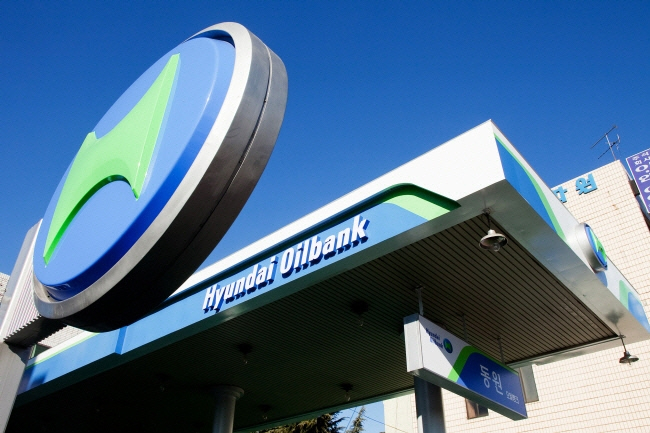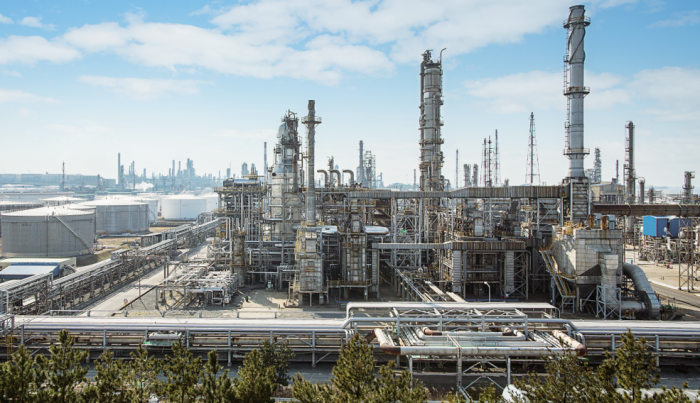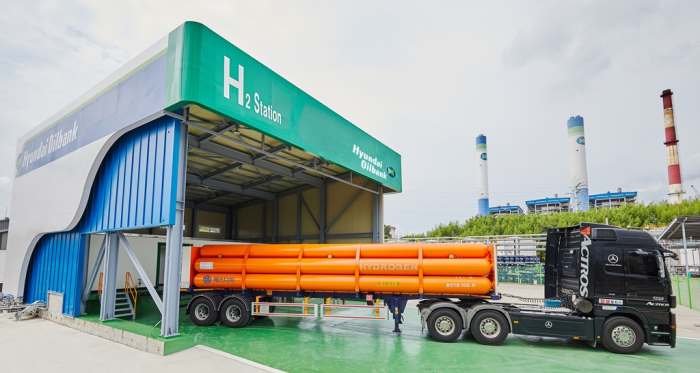Petrochemicals
HD Hyundai Oilbank ventures into bioenergy sector as new growth driver
The Saudi Aramco-backed Korean refiner has been broadening its business scope beyond fossil fuels
By Nov 29, 2024 (Gmt+09:00)
2
Min read
Most Read
LG Chem to sell water filter business to Glenwood PE for $692 million


KT&G eyes overseas M&A after rejecting activist fund's offer


Mirae Asset to be named Korea Post’s core real estate fund operator


StockX in merger talks with Naver’s online reseller Kream


Meritz backs half of ex-manager’s $210 mn hedge fund



HD Hyundai Oilbank Co., a South Korean crude oil refiner backed by Saudi Aramco, is diversifying its business beyond fossil fuel-centered operations into bioenergy and the circular economy.
According to industry sources on Friday, HD Hyundai Oilbank, an energy subsidiary of HD Hyundai Co., and its four affiliates including HD Hyundai Chemical Co. and HD Hyundai OCI Co., are seeking opportunities in the bioenergy and circular economy sectors.
HD Hyundai Oilbank built the country’s first biodiesel plant utilizing supercritical processing technology in April.
The plant has a biodiesel production capacity of 130,000 tons annually.
The company said it will vigorously respond to growing biodiesel demand as countries around the world increase biodiesel blending ratios.
In June, the company became Korea’s first domestic refiner to export sustainable aviation fuel (SAF), produced through co-processing, to Japan.
Co-processing is the use of waste as a raw material, a source of energy, or both as a substitute for fossil fuels.

SAF is an alternative fuel that can replace conventional aviation fuel.
Following the government’s announcement in August to expand the SAF industry, HD Hyundai Oilbank is also considering building an SAF production facility using hydrotreated vegetable oil, targeting completion after 2027.
In July, it exported bio-marine fuel — notching another first among domestic refiners. The move underscores the company’s proactive advance into the alternative transportation energy sector.
CIRCULAR ECONOMY
HD Hyundai Oilbank is also looking to the circular economy sector for growth.
The circular economy involves collecting and reprocessing waste plastics, used lubricants and scrap tires to produce naphtha, propylene and base oil.
In 2021, the company processed pyrolysis oil from waste plastics at its crude refineries to produce circular naphtha, which was later supplied to nearby petrochemical firms to create new plastic products.
In March, HD Hyundai Chemical became the first Korean refiner to produce bio-naphtha certified by the International Sustainability and Carbon Certification (ISCC) system.

HD Hyundai said it achieved a milestone in bio-feedstock use and resource recycling by using bio-raw material-based feedstock such as waste cooking oil supplied by CJ CheilJedang Corp.
In October, HD Hyundai OCI, in its circular economy initiative, supplied circular carbon black, produced from recycled scrap tires, to Hankook Tire & Technology Co.
BIODIESEL BUSINESS
In 2022, HD Hyundai Oilbank forged a strategic partnership with food maker Lotte Confectionery Co. to jointly seek business opportunities in the biodiesel sector.
Biodiesel is a form of diesel fuel derived from plants or animals. It is a renewable, biodegradable fuel manufactured from vegetable oils, animal fats or recycled restaurant grease.
HD Hyundai Oilbank has also tapped into the white biotechnology market as it aims to transform into an eco-friendly company.
White bio uses living cells from plants, enzymes and microorganisms to produce energy with a lower carbon footprint.
Write to Seok-Cheol Choi at dolsoi@hankyung.com
In-Soo Nam edited this article.
More to Read
-
 PetrochemicalsHD Hyundai Oilbank to fully own HD Hyundai Cosmo for $104 mn
PetrochemicalsHD Hyundai Oilbank to fully own HD Hyundai Cosmo for $104 mnOct 25, 2024 (Gmt+09:00)
3 Min read -

-
 Carbon neutralityHyundai Oilbank, Lotte Confectionery tie up for biodiesel business
Carbon neutralityHyundai Oilbank, Lotte Confectionery tie up for biodiesel businessAug 02, 2022 (Gmt+09:00)
1 Min read
Comment 0
LOG IN


